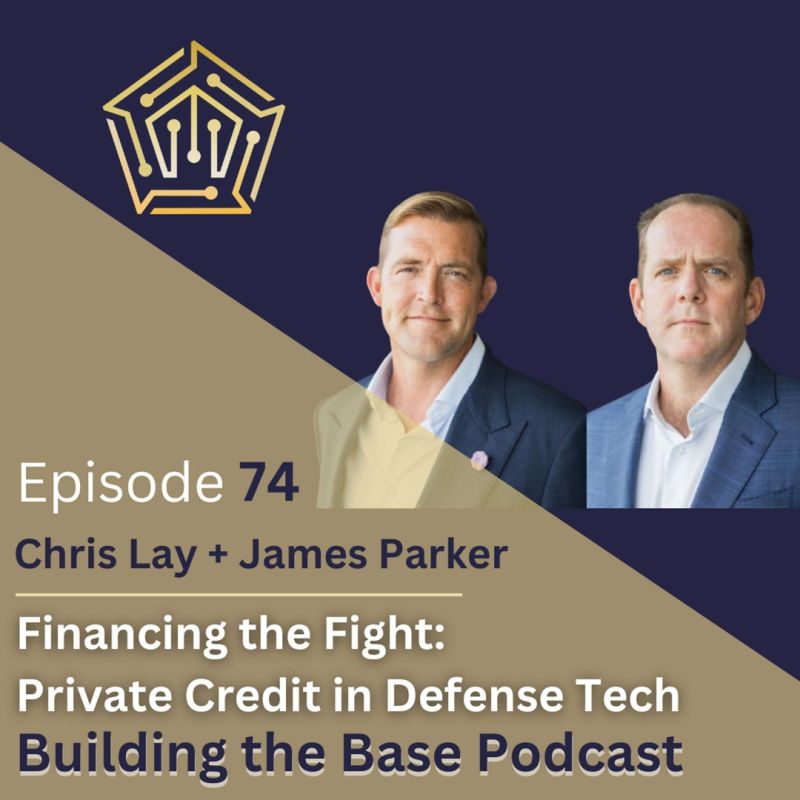- Perspectives

Investing in Adversaries: The Case Against Long-Term Capital Gains for Carried Interest in National Adversary Economies
By James Parker, Co-Founding Partner of Leonid Capital Partners
(Translation: Stop giving tax breaks to people who fund our national competition.)
Let me begin with a disclaimer: I am not someone who usually calls for higher taxes, and – selfishly – certainly not those targeted toward investment managers. As a private credit professional, I live in a world where creative financial structures and intelligent tax strategies are critical to business success. However, there’s one glaring exception I feel compelled to address.
Here’s the crux: Private equity and Venture Capital firms currently enjoy long-term capital gains treatment on carried interest for their investments – including investments in businesses that support the economies of our national adversaries, like China. This tax benefit, originally intended to incentivize long-term domestic investment, has instead unintentionally become a subsidy for strengthening the economies of countries that pose direct threats to U.S. interests. And that – as they say – is a problem.
The Basics of Carried Interest
Carried interest is the share of profits that private equity (PE) venture capital (VC) fund managers receive as compensation for successfully managing investments. Under current law, this income is taxed as a long-term capital gain—typically at a much lower rate than ordinary income.
The argument in favor of this treatment is that the prospect of earning carried interest income with preferential tax treatment encourages long-term investments that ultimately strengthen and grow our economy. That’s all well and good when the investments are in U.S. businesses or allied economies. But when those same tax incentives are applied to investments that prop up adversarial regimes, the policy starts to look less like good economics and more like a national security blind spot.
Strengthening Adversaries with U.S. Taxpayer Dollars
The issue isn’t just theoretical. Private equity and Venture firms have funneled billions into sectors critical to China’s economic and military development—semiconductors, artificial intelligence, and advanced manufacturing, to name a few. These are the same industries where the U.S. continues to scramble to maintain a competitive edge.
Think about it: American tax policy is effectively rewarding PE/VC firms for enabling China’s rise as a global superpower. The long-term capital gains tax treatment reduces the financial “friction” of these investments, making it easier and more profitable to select investments and deploy capital.
Certain groups will continue to rely on the concept of infectious capitalism – that someone the nobility of our national economic model will finally take hold and destroy the evils of communism from within. The issue is, we’ve been making that argument for years and all that has happened is that Russia has devolved into little more than a kleptocracy and Peoples Republic of China has firmly assumed its spot as the only other legitimate global superpower.
Why This Argument is Unusual for a Private Credit Professional
I get it. It’s not every day you hear someone in private investment arguing for higher taxes of any sort. Our industry tends to view any policy that reduces returns as an existential threat. But this isn’t about targeting Private Equity and Venture Capital. It’s about applying common sense to tax policy in a way that aligns with national security priorities.
To be clear, I am not advocating for the outright abolition of carried interest tax treatment. My focus is narrow: investments in economies of declared national adversaries should not enjoy the same tax benefits as investments in our own economy or those of our allies.
Show me the incentives and I’ll show the behavior. Call me naïve, but I think incentivizing U.S. capital to fuel the growth of adversaries’ economies is fundamentally un-American.
The National Security Risk of Unchecked Capital Flows
Investment isn’t neutral. It strengthens the recipient’s economy, fosters technological advancements, and builds global influence. When American capital flows into China’s semiconductor or cybersecurity industry, for example, it doesn’t just create jobs in Shenzhen. It also helps China’s military narrow the technology gap with the United States.
By continuing to treat these investments as fundamentally the same as domestic investments and eligible for long-term capital gains treatment, we are tacitly endorsing the idea that the economic growth of adversarial nations is in our best interest.
This isn’t just a question of patriotism – it’s about risk. China’s government operates with a level of state oversight and control that allows them to weaponize foreign investments with impunity. Every dollar of U.S. private equity capital that flows into critical Chinese industries potentially accelerates the erosion of America’s technological and military superiority, making every US citizen fundamentally less safe.
The Moral Hazard of Tax Subsidies
One of the more troubling aspects of this issue is the moral hazard it creates. PE firms are profit-maximizing entities, and that’s fine. But when tax policy lowers the cost of investing in adversarial economies, it distorts the risk-reward calculus.
Incentives matter. By giving favorable tax treatment to investments in adversaries’ economies, we’re essentially saying “Your returns are more important to the US economy than fundamental safety and security.
Less tax revenue is less defense funding. Less tax revenue means that social programs get less funding. Less tax revenue means firepower – both economic and kinetic.
A Call for Targeted Reform
Here’s a modest proposal: Congress should pass legislation disqualifying carried interest from long-term capital gains treatment when the underlying investments are in adversarial economies.
This isn’t about punishing private equity and venture capital—it’s about creating the right incentives. If a PE firm wants to invest in a manufacturing facility in Ohio, then great. If VCs want to back a cybersecurity startup in Austin – fantastic. Reward that. Incentivize that behavior with the positive reinforcement of increased returns. But if they want to back similar companies in China, the tax code shouldn’t make that decision easier or more profitable. If we aren’t going to outright ban such foreign investment for the reasonable fear creeping deglobalization, we certainly shouldn’t be rewarding the behavior that is against our strategic interests.
The Bigger Picture: Patriotism in Capital Allocation
At its core, this argument isn’t about tax policy – it’s about priorities. As a nation, we need to decide what we value more: maximizing financial returns or safeguarding our long-term national security.
PE and VC firms are some of the most sophisticated capital allocators on the planet. They have the power to shape industries, build economies, and—whether they realize it or not—shift geopolitical balances. It’s time to align the tax code with the reality that capital is not just an economic tool, but a strategic one. Our enemies certainly know this and behave accordingly.
Closing Thoughts
America’s dominance in the 20th century wasn’t an accident. It was the result of deliberate policy choices that prioritized national security, innovation, and economic growth. Allowing our tax code to subsidize investments in adversarial economies is a betrayal of that legacy.
The road to hell, as the saying goes, is paved with good intentions. Carried interest tax treatment might have started as a well-intentioned policy to encourage investment. But when it comes to investments in national adversaries, it’s leading us straight to a geopolitical nightmare.
There is no nobility in a fair fight. I want the United States and our allies to unabashedly overwhelm our enemies, quickly and totally. Fundamentally, that’s how you put fewer warfighters and their families in harm’s way. The best way to finish a fight is to do so before it even starts.
Follow the Quartermaster newsletter here.



